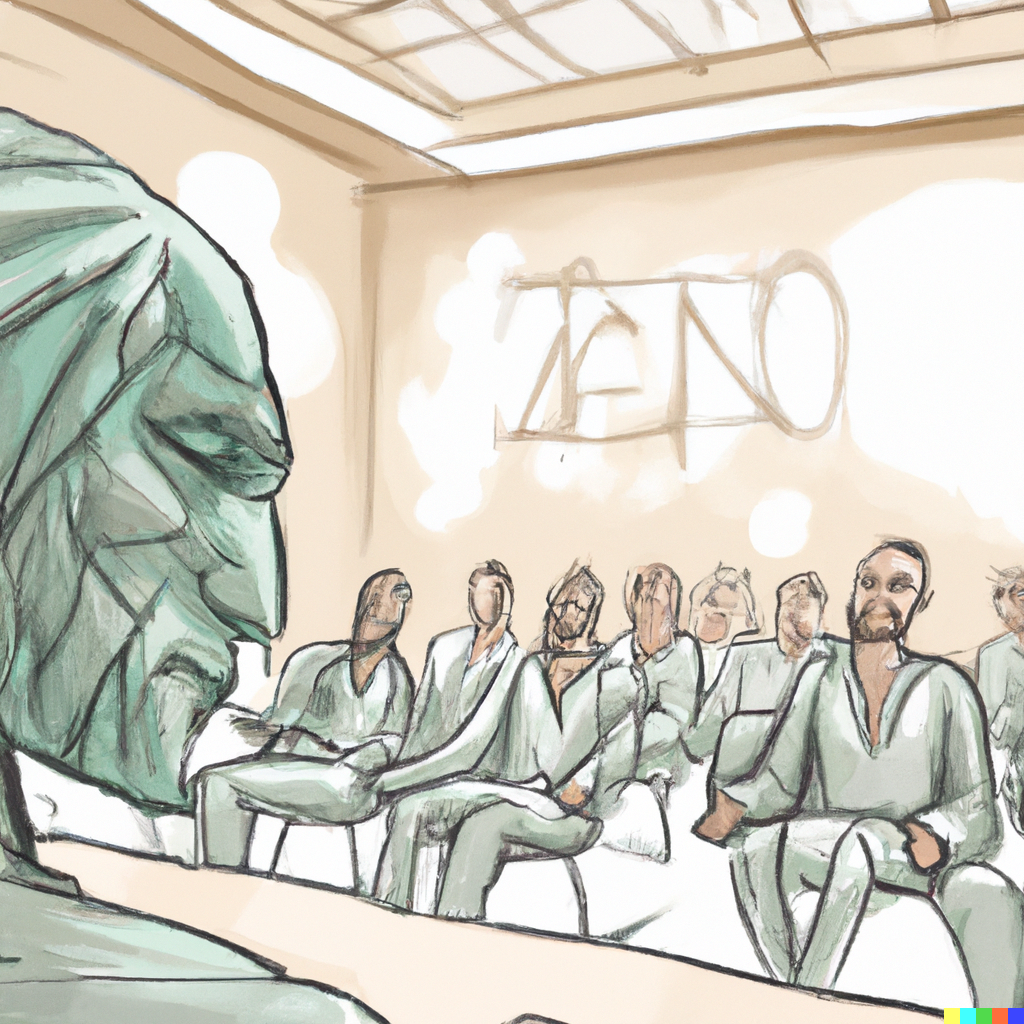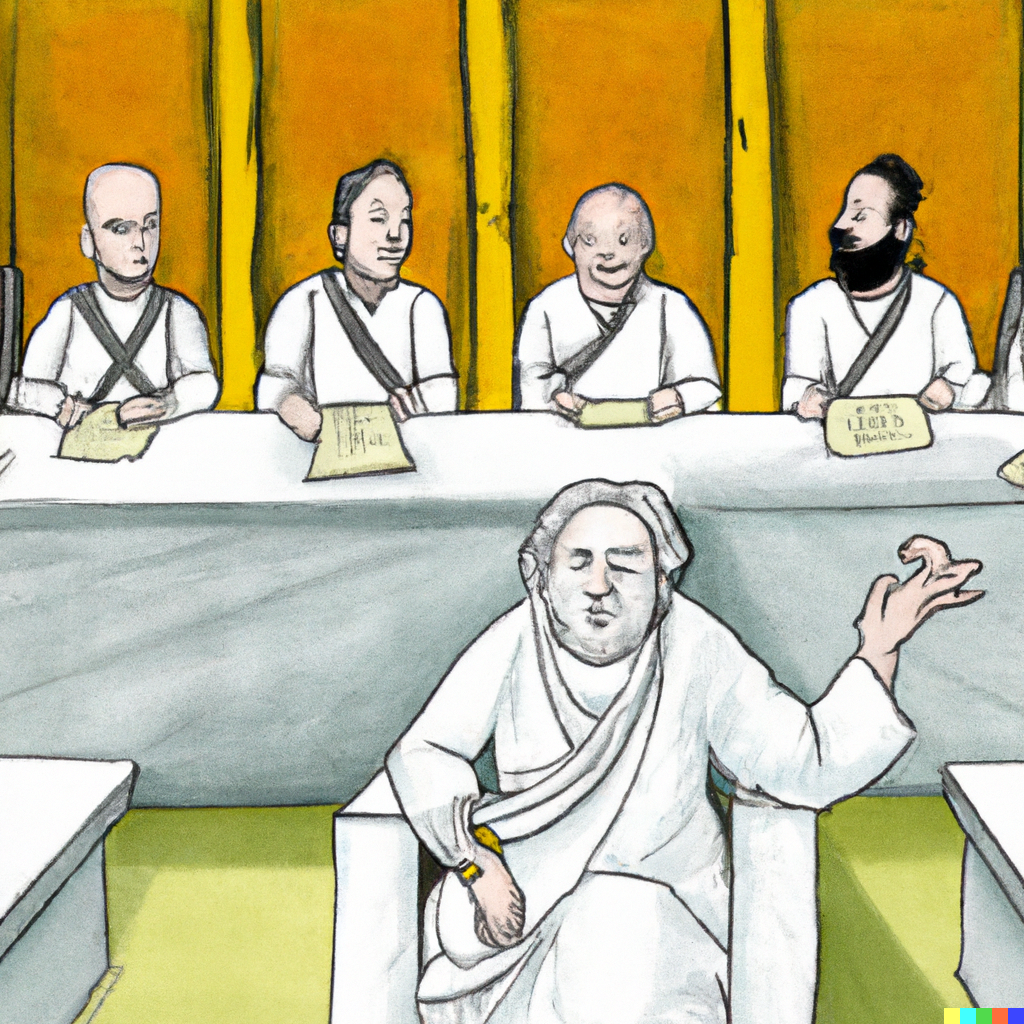
Zeno of Citium was a philosopher born in Citium, Cyprus at or around 334 BEC. He is primarily known for his writings as a stoic due to later philosophers since none of his Works have survived however the ideas that he has had have persevered and been expanded on by following generations. due to this he is a worthwhile figure to understand Within the development of stoic thought while not all of his teachings have aged as well as others.
Zeno’s teachings focused on the pursuit of virtue which he believed was important for finding a good life. This involved living in harmony with nature and making sure that your actions were driven from reasonable and ethical principles. A key teaching for him was the concept of distinguishing what is within our control and outside of it. He taught that external events and circumstances are often outside of our control while our internal World such as thoughts and actions are things that we can manipulate. This recognition introduces the concept of self-control and urges individuals to ensure energy is expended on the right things. it is this specifically that stoic leadership can most rely on As Leaders regulate their emotions and exercise discipline and decision making.
Expanding on this his philosophy emphasized resilience in the face of adversity. Life, he taught, is going to be inevitably challenging and it is only the response that we have that is in our control and what matters. He encouraged individuals to look at these challenges as opportunities for growth rather than becoming emotionally obsessed with them. By seeing challenges as opportunities for growth he believed that future challenges would be more easily addressed.
Zeno’s teachings also include acceptance of change. This principle has direct implication to emotional and mental resilience in leadership and life. Because change is inherently a part of life it is our resistance to change and clinging to the Past that causes unhappiness, depression, and hinders our own growth. Stoicism encourages individuals to adapt to change and accept the impermanence of life. in the context of leadership or management or even parenting this enables the individual to navigate transformations and pivotal changes while embracing innovation and pursuing the best outcome.

One of the last principles for the Zeno talk that will be discussed here is self-control. he emphasized Mastery over the emotions and the ability to calmly evaluate a situation. Stoicism teaches people that their emotions are real, but they are in an internal state that needs to be observed and not be used as the sole decision-making factor. The practice of self-control allows individuals to make decisions based on the information available rather than impulsive emotions. Leaders can create more stable work environments and Foster better communication by adopting this type of stoic philosophy.
Zeno’s teachings here have a lot of impact on leaders looking to apply the lessons. Leaders who incorporate this mindset will exhibit higher emotional intelligence, make more rational decisions, and be less likely to be driven by their own momentary impulses.
While Zeno’s Teachings have had a long impact on stoicism and continue to be influential it is also true that not all aspects of his philosophy have remained a part of modern stoicism. Over time stoicism has continued to evolve and certain parts of his teaching no longer align with current day preferences. for example, he believed in a deterministic universe where the world was Clockwork, and all things were predetermined. This means that there is no such thing as free will. The concept of predestination implies that events will unfold according to the cosmic order and individual personal choice is just an illusion. This belief was integral to his philosophy however has effectively diverged from Modern stoic traditions. one objection is if there is no free will then the decision to focus on internal events versus external events is illusionary as well as both are simply part of an ongoing process, and our focus and decision is in fact an illusion.
The concept of free will to this day remains a complex argument, however many modern stoics would suggest that the question of the deterministic universe or one in which Free Will exists is inconsequential. in other words, the belief in one or the other does not have any immediate implication to the decisions we have in front of us.
In conclusion Zeno taught about self-control and resilience, two strong psychological tools for approaching leadership as well as life. The emphasis that he put on focusing what is on our control and accepting change empowers the individual to be more actionable and less confined due to attempts to make decisions for things that they cannot influence.